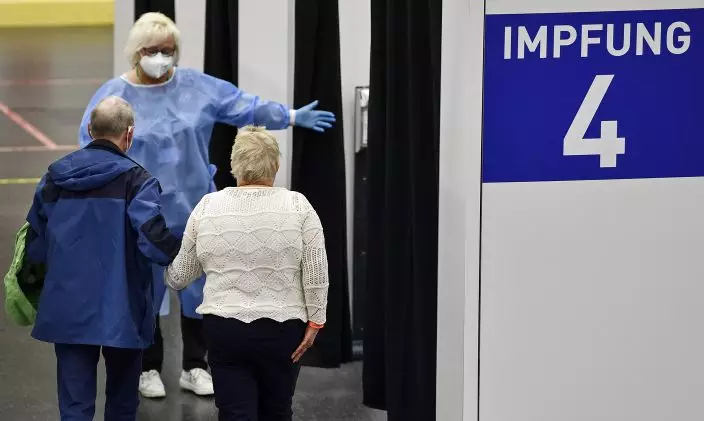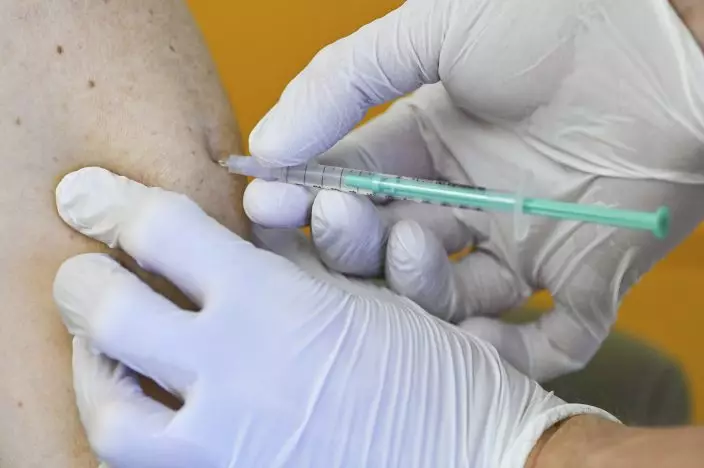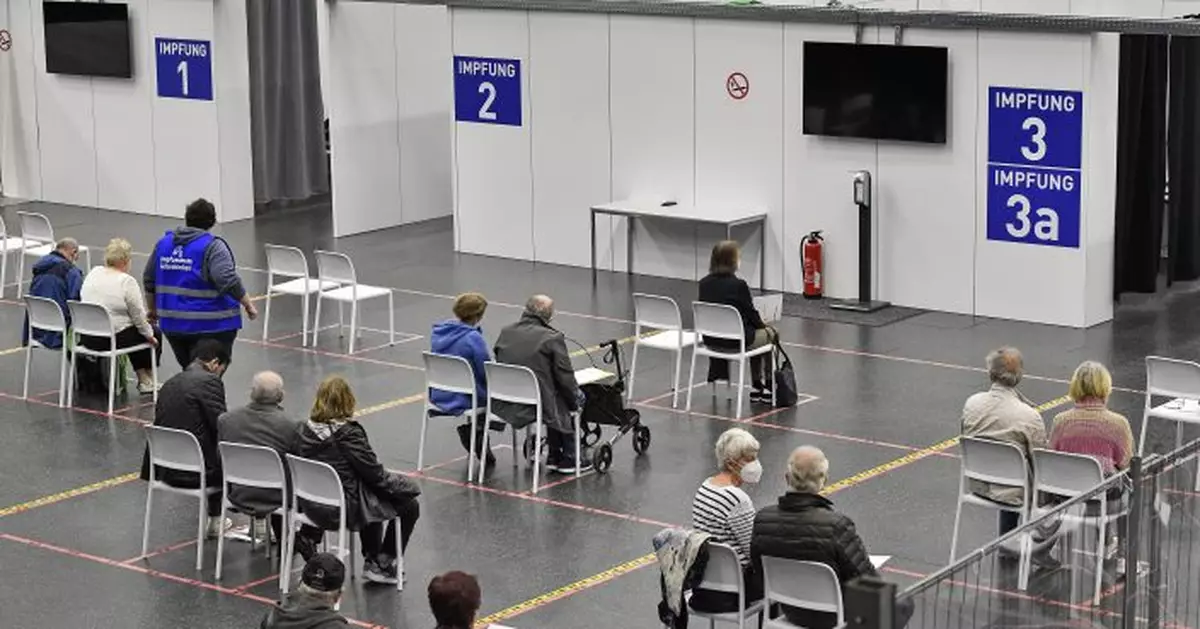Chancellor Angela Merkel and the governors of Germany's 16 states on Monday discussed whether people who have been fully vaccinated against COVID-19 should be exempt from certain restrictions put in place to curb the spread of the virus.
The issue of special privileges for vaccinated people has been hotly debated in Germany, as in other countries.
Some have argued it's unfair on those who haven't been able to get the shot yet. Others say restrictions on civil liberties are justified while people pose a risk to others.

People are on their way to their vaccination at the vaccination center in Gelsenkirchen, Germany, Monday, April 26, 2021. Germany's COVID-19 vaccination program will be discussed at a meeting with Germany's state Governors and Chancellor Angela Merkel in Berlin today. (AP PhotoMartin Meissner)
Scientists say that while vaccines significantly reduce the risk of serious illness, it isn't clear yet whether people who've been immunized can still spread the virus.
The head of Merkel's conservative Christian Democrats said he wants swift clarity on the issue of privileges for vaccinated people and those who've recovered from a COVID-19 infection.
“This needs to be settled today in a binding way,” Armin Laschet said. The governor of North Rhine-Westphalia, Germany's most populous state, was recently put forward by Merkel's Union bloc as its candidate to succeed her as chancellor in a federal election Sept. 26.

In a family doctor's practice, a man receives his first vaccination against the coronavirus with the active substance from Astrazeneca in Potsdam, Germany, Monday, April 26, 2021. In the afternoon, the vaccination summit of the federal and state governments takes place. (Patrick Pleuldpa via AP)
After a sluggish start, Germany — like other European Union countries — has seen vaccination rates rise sharply in recent weeks.
Official figures show that some 23.4% of the population had received at least one dose of vaccine by Sunday. About 7.2% of Germany's 83 million inhabitants have so far received both shots.
Other issues being discussed at the meeting include whether and when to end the practice of prioritizing vaccinations for particularly vulnerable groups, such as the elderly and those with pre-existing conditions.
Follow all of AP’s pandemic coverage at:
https://apnews.com/hub/coronavirus-pandemic
https://apnews.com/hub/coronavirus-vaccine
https://apnews.com/UnderstandingtheOutbreak


